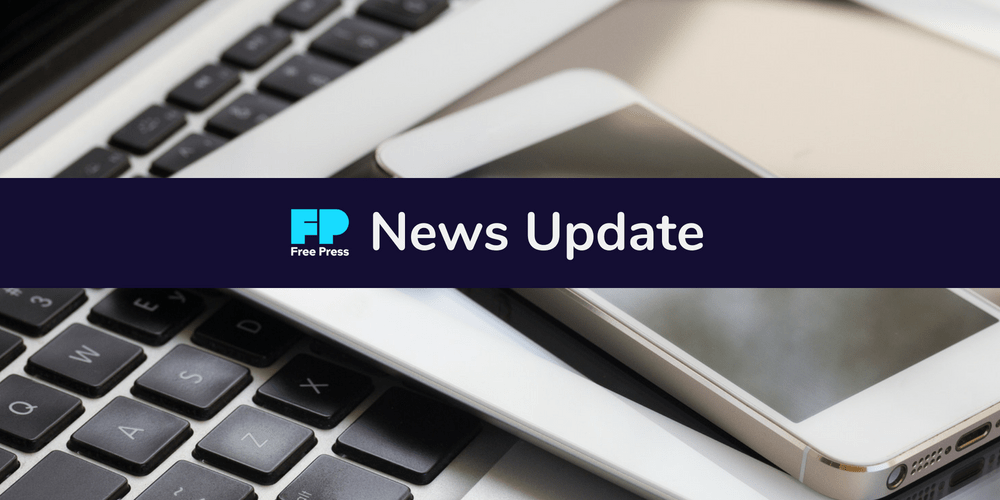National Poll Finds Spanish Speakers Concerned About the Spread of Misinformation and Their Readiness to Prepare for and Participate in Elections

WASHINGTON — On Thursday, Free Press released research on daily Spanish speakers’ attitudes about media and technology this election year. These findings — drawn from the results of a nationwide Free Press poll — show that Spanish speakers in the United States are even more likely than others to feel they do not have enough independent news sources to make informed voting decisions. Spanish speakers in the United States use social media for news more frequently and for longer times than other U.S. populations surveyed.
According to Free Press’ analysis of the results, the poll indicates that daily Spanish speakers are more likely to experience the negative impacts of online misinformation, affirming years of research that finds Latinos are ripe targets for bad actors.
Our poll found that:
- Daily Spanish speakers spend more time online, more time using social media and less time watching traditional TV compared to other U.S. adults.
- Daily Spanish speakers are more likely to report “very often” sharing or receiving news-article links compared to other U.S. adults.
- Daily Spanish speakers are more frequent users of Facebook, Instagram, TikTok, Twitter/X and YouTube for news.
- Despite their higher levels of engagement with online news, daily Spanish speakers are more likely to say they don’t feel informed about local elections.
- As was the case with the rest of the poll’s respondents, nearly half (47 percent) of daily Spanish speakers report that they encounter stories they believe are misinformation “very often” or “some of the time.”
These findings point to several necessary interventions from our media and tech sectors. For many years, Free Press has called on social-media platforms to deepen their efforts to address the spread of misinformation in Spanish and other non-English languages. As the U.S. elections approach, platforms must invest in non-English moderation and staffing to address asymmetries where Spanish and other non-English-language content remains unmoderated. Additionally, Free Press has also supported efforts to expand access to high-quality Spanish-language civic news, as well as civic news catering to other non-English speakers in the United States.
Other relevant poll results indicate that daily Spanish speakers are more likely to report that they would cancel their home-internet service if the price increased by $20 per month. Earlier this year, U.S. lawmakers failed to extend funding for the Affordable Connectivity Program, the broadband-access subsidy that had helped more than 23 million households get and stay online. As a result, many households must now pay more to get connected. As we begin to evaluate the impacts of this funding gap, which took effect in June, these poll findings suggest that it could disproportionately harm Spanish speakers, curtailing access to reliable news and information.
More information about the poll findings on Spanish speakers can be found here.
Free Press Co-CEO Jessica J. González said:
“Our poll’s findings must serve as an urgent call to action for social-media companies, news outlets and governments to ensure that the country’s Spanish-speaking population can afford access to the reliable civic news and information they need. Latinos are the second-largest segment of the electorate. With the recent chaos of the campaigns, platforms must move quickly to restore integrity to the information shared on their platforms in Spanish.
“The poll shows that daily Spanish speakers in the United States are concerned about the twin problems of dwindling local news and the prevalence of false information online. It’s deeply concerning that daily Spanish speakers report lacking the information they need to participate fully in our democracy — and that they’re more likely to be targeted with online misinformation than other populations. With Congress’ recent failure to renew funding for the Affordable Connectivity Program, which subsidized internet access for low-income populations, daily Spanish speakers are even more likely than other Americans to be forced off the internet should the cost of access increase. And the threat of increases in the wake of the ACP’s funding cutoff comes at a time when people rely heavily on internet access to find news and information.
“Free Press has demanded that social-media companies enforce their rules equitably and across languages to prevent the saturation of anti-democratic hate and lies in Spanish and other non-English languages. It’s why we’re calling on Congress to renew funding for the Affordable Connectivity Program. And it’s why we’re insisting on greater public investment in independent local news, with a focus on noncommercial and ethnic media outlets.
“About 42 million Americans, or over 12 percent of the U.S. population, are dominant Spanish speakers. It is simply unacceptable for corporate and government decision-makers to push more than one in 10 Americans to the sidelines of our democracy.”
Notes on Methodology: Prior to designing the polling instrument, the African American Research Collaborative and BSP Research held four focus groups to observe how Americans think about and discuss their use of media and tech. There was one focus group each of Black women, young Midwesterners, parents of color of young teens, and Spanish-speaking Latinos from California. This qualitative research helped inform questions asked in the resulting survey.
In conducting the poll, Free Press sought to understand Americans’ attitudes about media, technology and democracy — at a time of rising distrust in mainstream outlets, declining local-news coverage and the rise of social media as a source of news and information. Free Press worked with the African American Research Collaborative and BSP Research to ask 3,000 people across the United States dozens of questions. Questions delved into a number of media and tech issues to gain a thorough understanding of where people stand in 2024.
The 3,000 U.S. adults surveyed included 778 adult Latino respondents. The analysis released on Thursday focuses on differences between daily Spanish speakers (419) and all other respondents (2,581).